Archive
26 October 2022
ERC Synergy Grant to unravel the formation of protein complexes
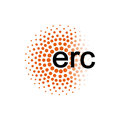
A prestigious ERC Synergy Grant worth 9.4 million euros has been awarded to a team of researchers that aims to elucidate a new mechanism to explain how protein complexes are formed.
05 October 2022
Gijsje Koenderink and Sjoerd Stallinga receive funding from NWO Open Technology Programme

The NWO has awarded over 4.5 million euros to six projects through the Open Technology Programme, including the SUSTAINER project of Gijsje Koenderink and the Digital Pathology in 3D project of Sjoerd Stallinga.
22 September 2022
Pushing the boundaries of microscopy to understand cells better
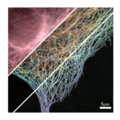
Kristin Grußmayer pushes the boundaries of microscopy with new techniques to study the exact location of molecules, and to make extremely fast 3D images of the cell. Her research group will take a look at the early stage of Huntington’s disease on a very small scale, now possible thanks to these advanced microscopy methods.
26 August 2022
New CRISPR-Cas system with on-off switch cuts proteins
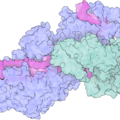
Researchers from TU Delft in the group of Stan Broun have discovered a CRISPR-Cas system that cuts proteins instead of DNA.
25 August 2022
Cells: strong at the right place and time
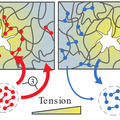
Researchers from TU Delft and NWO institute AMOLF discovered how certain molecular bonds make living cells both flexible, in order to move, as well as strong, in order to withstand forces.
04 August 2022
TU Delft researchers create flow-driven rotors at the nanoscale
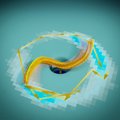
Onderzoekers van de TU Delft hebben de kleinste door stroming gedreven motoren ter wereld ontwikkeld. Geïnspireerd door de iconische Nederlandse windmolens en door biologische motoreiwitten hebben ze een zichzelf configurerende, stromingsgedreven turbine uit DNA gemaakt, die energie van een elektrische of zoutgradiënt omzet in bruikbaar mechanisch vermogen. De resultaten bieden perspectief voor de ontwikkeling van actieve robotica op nanoschaal. Het artikel is vandaag gepubliceerd in Nature Physics.
08 July 2022
Evolutionary model predicts how cells control the partitioning of their molecules
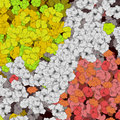
Researchers from the Max Planck Institute for Dynamics and Self-Organisation in Göttingen, Germany, and the TU Delft in the Netherlands have developed a new method to study how mixtures, consisting of many different molecules, interact to reliable form different droplets, as happens continuously in the living cell. This is the first time that scientists designed a model of many interacting molecules that can predict how particular droplets form. They published their findings in PNAS this week.
14 April 2022
Rubicon grant for Jochem Vink
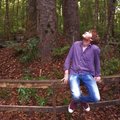
Jochem Vink (Bionanoscience) has received a Rubicon grant from NWO, which enables him to gain research experience at a leading institute abroad. His research will be about useful fungi attracting pathogens. He was awarded the coveted grant along with 21 other researchers who recently received their PhDs.
16 March 2022
New Cas9 model maps DNA cutting behaviour for the first time
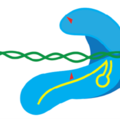
Researchers from the TU Delft have come up with a physical-based model that establishes a quantitative framework on how gene-editing with CRISPR-Cas9 works, and allows them to predict where, with what probability, and why targeting errors (off-targets) occur. This research, which has been published in Nature Communications, gives us a first detailed physical understanding of the mechanism behind the most important gene editing platform of today.
14 March 2022
IM Claire Wyman
With deep regret we announce the passing away of Prof.dr. Claire Wyman, founder and long-term director of the Nanobiology programme, on Thursday March 10. Claire has been ill for some time. Her passing affects us immensely.